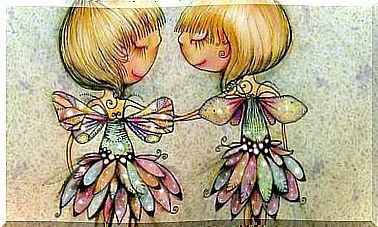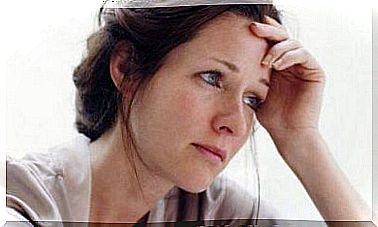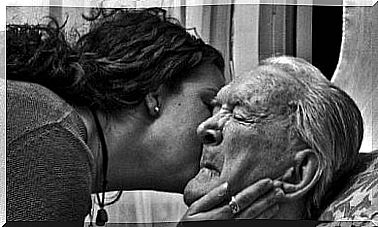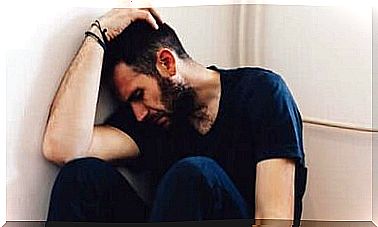How Can A Child Survive In A Broken Family?
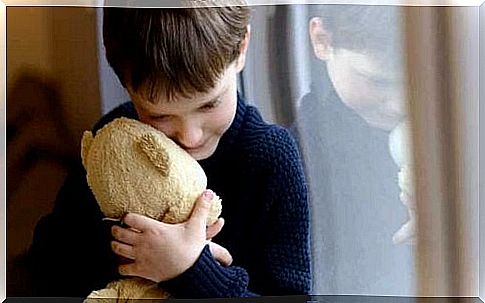
Growing up in a broken family can have dire consequences. However, these types of families are far more common than we might think. Emotional manipulation, degrading behavior, lack of empathy and sensitivity, communication problems and dependence – all of these are traits that indicate a dysfunctional family.
The family environment can promote or hinder children’s psychological development, which is why it is so important. When a child grows up in a broken family, they have to adapt to survive. It does this to protect itself from an environment that is not good for it. In addition, it observes dysfunctional behavior patterns that it is likely to mimic when it grows up itself.
5 types of roles
As we said before, it is not that rare to find broken families. It is therefore not uncommon for children to have to learn to take on different roles. These roles allow them either to protect themselves or to submit to what is going on around them. There are 5 types of roles that children can play in such a situation. Your choice will depend on the child’s personality and the type of dysfunctional family the child is growing up in:
- The rebellious child. A child with behavioral problems who rebels against any kind of authority. This child likely grew up in a home where the parents separated or where there was abuse.
- The culprit. A child who has always been blamed and who feels guilty about it. This child has a negative view of himself and was never valued by his parents.
- The little adult. This child has taken on the role of the parent. It matured at an early age and did not have a normal childhood. In general, his parents were emotionally immature and unable to take control of their lives.
- The unworthy child. A child whose needs have been ignored and who has learned to suppress their feelings. As a result, they are usually shy and calm. His parents didn’t pay much attention to him as they were likely engrossed in their own relationship problems. The child therefore believes that they are not worthy of love.
- The manipulator. This child learns that manipulation can give them what they want. Most likely it has parents who don’t know how to set boundaries and who aren’t very interested in them either. They prefer to give the child a video game or candy just so that they can have their peace of mind.
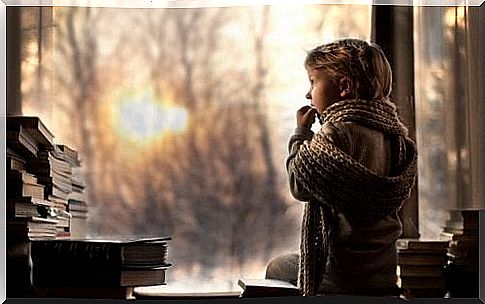
Growing up in a broken family
Perhaps some of us can identify with the roles described above. Perhaps we unconsciously embraced it when we were very young and we had not yet understood life and human relationships.
It is common to hear parents say that they have difficult or rebellious children who drive them crazy. What they fail to realize, however, is that their children’s behavior is a desire for affection, attention, and appreciation. This problem is more pronounced in a dysfunctional family. The parents usually point the finger at the youngest children and classify them as problematic. They complain that they are selfish. However, the truth is that the problem always starts with the parents. These adults have not learned how to identify with other people in a healthy way.
Children in a broken family learn dysfunctional behavior patterns that they are likely to reproduce in the not too distant future. Take the example of a child growing up in a family where there is abuse and addiction. The parents are absorbed in their own problems, the child does not get any attention from them, is neglected and often even feels guilty. This child is likely to take on the role of the perpetrator or the unworthy.
Consequences for the future
What kind of relationships can these children expect in their future? Most likely, it will be relationships where they will suffer because they feel like they have no choice. If you come across someone who abuses you, you will likely endure that bad treatment because you have learned that this is the normal way to communicate with people.
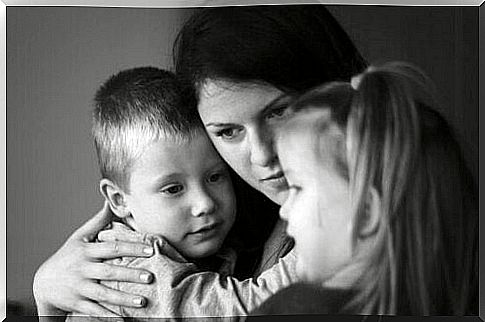
And what about their relationships at work or their friendships? Their lack of self-esteem and constant feelings of guilt will lead them to feel responsible for their own mistakes and those of others. Maybe they’ll become perfectionists too.
The family is the environment in which children grow up and in which they have to learn to communicate with others, to identify with them and to empathize with them. If we don’t care about improving our relationships, resolving existing conflicts, and setting good examples to the youngest members of the House, who is going to do it? Otherwise we stir up harmful behavior patterns in the next generation, which will cause them a lot of suffering.
Finally, some good news: Although many of us grew up in dysfunctional families, we are the main actors in our adult lives. We can heal all of these childhood wounds and redefine the direction of our lives. It’s a show of strength, but it is possible.




